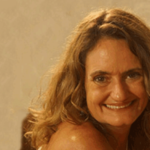Innocent F. Swai is a technologist by profession and the co-founder of the Mwandege Boys Secondary School (http://mwandegeschools.com), an education institute in Tanzania. The school focuses on developing students’ talents and interests for the greater good of the society.
Innocent is developing a blog (http://www.bereadytolearn.org) in Africa as resource guide to help readers achieve and reach higher standards in their education and professional life.
1. You are one of the Mwandege Boys Secondary School founders in Tanzania. Tell us about the school’s philosophy and overall mission.
In general, the school’s philosophy is to give the students a well-rounded education. Our motto is “serve and learn.” We serve to produce independent people with free minds able to make tangible decisions.
Our students must learn how to embrace the school’s philosophy and values. Mwandege Boys functions on the mantra of embracing the power of knowledge and its application to the daily life of an individual, which is absolutely crucial to their journey in life. Knowledge is power but only when it’s used in the right way in shaping the community. It is only fitting that the school’s philosophy goes hand in hand with its ultimate mission for every individual, whether it’s a student or school staff.
The long term mission of the school is to develop student’s talents and interests for the greater good of the society. This is made easier by student-facilitator engagement (yes, we call our teachers facilitators) at a personal level which shapes their confidence and helps them harness their potential.
2. The Mwandege School focuses on inspiring students to learn and understand by doing. How do you think this prepares the students for success in the real world?
In a modern society of increased innovation, market competition and booming technological development, it is essential for students and individuals to be equipped for the challenges that arise every day due to emerging technological changes.
Mwandege Boys’ Secondary School follows the ideal that students should not only be theory-based but practical through the knowledge they acquire. In my view that is what differentiates ordinary people from the extraordinary ones.
And so, learning by doing couldn’t come at a better time for students in Tanzania, especially at a crucial time of industrialization in the East African Community, where their ideas can be embraced and only the proactive ones can thrive. That is why as one of the eight founder members of the institution, I am glad to have been part of a pioneering revolution in the education of Tanzania. It goes beyond the four wall classroom through the What Is Not Taught In School (WTS) program whereby we collaborate with different stakeholders to educate, entertain, inspire and build lasting impactful habits to our students.
3. What are some of the biggest obstacles you face as an education stakeholder? What motivates you to keep inspiring students to learn and follow their dreams?
Tanzania’s education system needs a massive restructuring from kindergarten all the way to university. We also need vocational education so as to prepare youngsters to work in various jobs, such as a trade, a craft, or as a technician. We are really lagging behind in this area as most of the vocational institutions were converted into universities.
The biggest challenge I encounter with when conversing with different youngsters in my community is a lack of confidence and passiveness in ideology.
Most of them are not confident in expressing their thoughts and in some cases, themselves. There is a general lack of delivery of thoughts, in the sense of structure and composure among the youngsters, which is only attributed by the fact that people are not taught to speak and stand up for themselves from primary level. This is a big problem for any progressing community.
Our society has shaped individuals to be reactive rather than proactive. We are good in complaining rather than looking for solutions to our problems. Example: why not employ reusable woven bags instead of waiting for the authorities to spend money on cleaning plastic bags we keep on using? A major challenge encountered is trying to instill proactivity in a reactive society to change. I am encouraged how our students get through these challenges which is a window of opportunity for them to bring changes. They are aware of what is needed in the markets and many other sectors to explore in our continent. The African economy is changing for better, which is why I believe continuous education is the only positive thing for these individuals. We must encourage our youngsters to follow their dreams and work on them at a competitive level.
4. The school offers a program called, “What is not Taught in School (WTS).” How do you believe this teaching approach differs from other traditional schools?
This approach differs from the conventional teaching methods in the following ways:
First, the WTS program instills a solution-based mentality in students. Companies, organizations and the world in a whole are looking for people with ideas and solutions in different aspects. The WTS program instills that mentality to students.
Second, the WTS program offers a two-pronged approach to the way we receive knowledge compared to the traditional schools in Tanzania. I believe formal education with life lessons provide a perfect mix for developing progressive leaders and people who will change our nation.
Third, WTS program instills a reading culture which has disappeared in an increasingly digital society, which is affecting Tanzania. Great leaders are avid readers.
5. What do you hope the students at Mwandege School take away from their learning experience?
One student told me that what most if them take away with them is twofold:
First, learning how to learn. Students are given different interesting tools to help and keep them learning continuously.
Second, good scores like A’s in exams are not necessarily their A’s in life.
It’s not about your beginning or the end, it’s all about the journey between, since their past does not necessarily determine their future.
Bold



